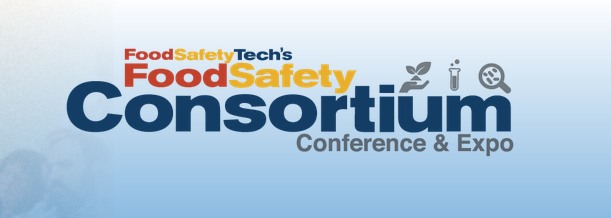The agenda for the 2020 Food Safety Consortium Virtual Conference Series has been released. The announcement about the annual Food Safety Consortium being converted to a virtual series due to the COVID-19 pandemic was made last month. Due to a demand to provide attendees with even more content, the event has been extended a full month and is running into December. Food Safety Tech is the media sponsor.
The event will begin every Thursday at 12 pm ET, beginning on September 3 and continue through December 17. Each week will feature three educational presentations, two Tech Talks, and a panel discussion. Weekly episodes include food defense, food labs, pest management, sanitation, food fraud, listeria detection, mitigation & control, professional development, women in food safety, supply chain management, COVID-19’s impact and food safety culture.
Frank Yiannas, FDA deputy commissioner for food policy and response, will serve as the keynote speaker on Thursday, October 1 at 12 pm ET.
“Human connection is so important for events, and we know we’re not the only game in town. That’s why we’ve invested in a Conference Virtual Platform that can facilitate discussions, discovery, and connection that can continue whether our event is offline or online—and not end with the live streaming,” says Rick Biros, president of Innovative Publishing and director of the Food Safety Consortium. “Simply, the experience other food safety conferences are offering is not conducive to learning, staying engaged or take into consideration that you have a job to do during that week. This is why we have designed the Consortium’s program with short, manageable episodes that are highly educational.”
Registration for the 2020 Food Safety Consortium Virtual Conference Series is open. Keeping in mind that registrants may not be able to attend every week due to scheduling conflicts, there is an option to watch the each session on demand.
Tech Talk Sponsorship
Companies that are interested in sponsoring a 10-minute technical presentation during the series can also submit their abstract through the portal. For pricing information, contact IPC Sales Director RJ Palermo.
Innovative Publishing has also converted the Cannabis Quality Conference to a virtual event. More information is available at Cannabis Industry Journal.
About Food Safety Tech
Food Safety Tech publishes news, technology, trends, regulations, and expert opinions on food safety, food quality, food business and food sustainability. We also offer educational, career advancement and networking opportunities to the global food industry. This information exchange is facilitated through ePublishing, digital and live events.
About the Food Safety Consortium Conference and Expo (The live event)
Food companies are concerned about protecting their customers, their brands and their own company’s financial bottom line. The term “Food Protection” requires a company-wide culture that incorporates food safety, food integrity and food defense into the company’s Food Protection strategy.
The Food Safety Consortium is an educational and networking event for Food Protection that has food safety, food integrity and food defense as the foundation of the educational content of the program. With a unique focus on science, technology and compliance, the “Consortium” enables attendees to engage in conversations that are critical for advancing careers and organizations alike. Delegates visit with exhibitors to learn about cutting-edge solutions, explore three high-level educational tracks for learning valuable industry trends, and network with industry executives to find solutions to improve quality, efficiency and cost effectiveness in the evolving food industry.














